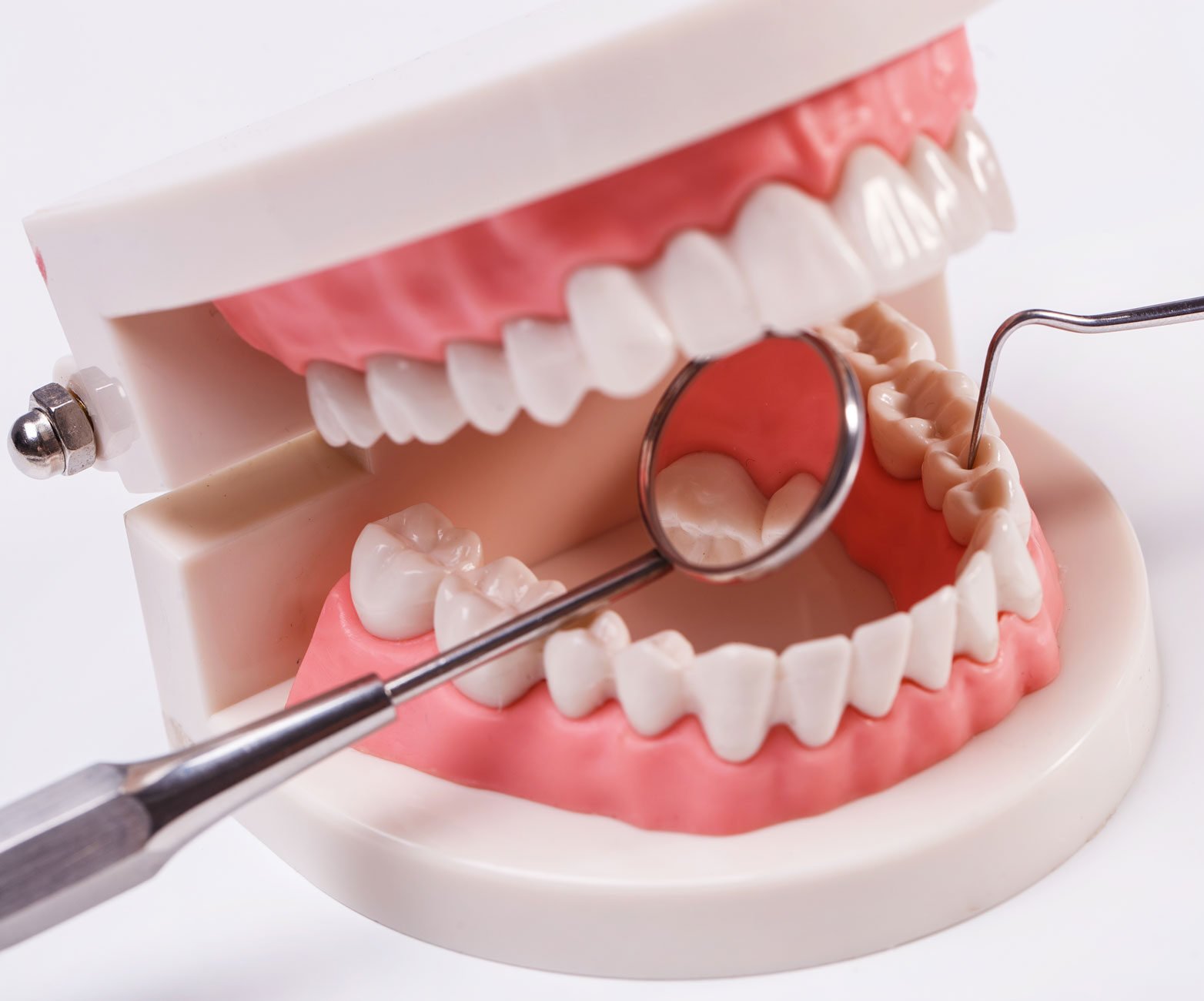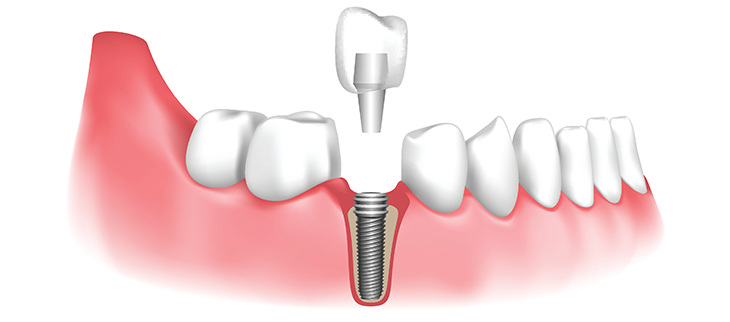All-on-6 dental implants have become a popular solution for patients seeking a full-mouth restoration. But how long can you expect them to last? In this article, we will delve into the factors that influence the longevity of All-on-6 implants and provide insights on what patients can do to ensure their durability. Stay tuned for expert advice from Dr. Implant Dentist, your trusted source for dental implant information.
How Long Do All-on-6 Dental Implants Last? Exploring the Lifespan of this Revolutionary Solution
The All-on-6 dental implant procedure is a revolutionary solution that can provide patients with a long-lasting and stable full arch restoration. But how long do All-on-6 dental implants actually last?
All-on-6 dental implants are designed to be a permanent solution for individuals who have lost most or all of their teeth. This innovative treatment involves the placement of six dental implants in the jawbone, which serve as anchors for a full arch of prosthetic teeth. The implants are typically made of titanium, a biocompatible material that integrates well with the jawbone.
The lifespan of All-on-6 dental implants can vary from patient to patient, depending on various factors such as oral hygiene, overall health, and habits like smoking. However, with proper care and maintenance, All-on-6 dental implants can last for a lifetime.
One key advantage of the All-on-6 procedure is the strategic placement of the dental implants. By distributing the load of the prosthesis across six implants, the pressure is evenly distributed, reducing the risk of implant failure over time. This contributes to the long-term success and durability of All-on-6 dental implants.
Regular dental check-ups and good oral hygiene practices are crucial for maintaining the health of All-on-6 dental implants. It is important to brush and floss regularly, as well as visit the dentist for professional cleanings and examinations. Following the instructions provided by your dental implant professional will help ensure the longevity of your All-on-6 dental implants.
In conclusion, All-on-6 dental implants offer a long-lasting and effective solution for individuals seeking to restore a full arch of teeth. With proper care and maintenance, these implants can provide a lifetime of comfort, functionality, and confidence.
Which is the superior option: All-on-4 or All-on-6 dental implants?
Both All-on-4 and All-on-6 dental implants are popular options for full-arch tooth replacement. However, the superior option depends on various factors such as bone density, oral health, and personal preference.
All-on-4 dental implants involve placing four implants strategically in the jawbone to support a full arch of teeth. This technique is suitable for patients with minimal bone density or who have experienced bone loss. It offers a less invasive procedure and shorter healing time compared to traditional implant methods.
On the other hand, All-on-6 dental implants utilize six implants instead of four, providing extra stability and support for the prosthetic teeth. This option may be preferred for patients with stronger jawbone density. The additional implants distribute the biting forces more evenly, reducing the risk of implant failure.
Ultimately, the decision between All-on-4 and All-on-6 dental implants should be made in consultation with a qualified dentist or oral surgeon. They will evaluate your specific case and recommend the most appropriate treatment based on your individual needs and goals.
In summary, there is no universal superior option between All-on-4 and All-on-6 dental implants. The choice depends on factors such as bone density and personal preference. A professional consultation is crucial to determine the best treatment plan for each patient.
What advantages do all-on-6 dental implants offer?
All-on-6 dental implants offer several advantages in the context of dental implants. Here are some of the key benefits:
1. Stability: All-on-6 implants provide a stable foundation for a full arch of teeth. By using six implants to support the prosthetic teeth, it ensures maximum stability and prevents movement or slippage.
2. Minimally invasive: This technique requires fewer implants compared to traditional methods, which reduces the need for extensive bone grafting or sinus lift procedures. It is a less invasive option for patients with insufficient bone density.
3. Time-saving: All-on-6 implants often allow for immediate loading, meaning that temporary or permanent teeth can be attached to the implants right after the surgery. This eliminates the need for a prolonged healing period and enables patients to have functioning teeth much sooner.
4. Aesthetics: All-on-6 implants provide natural-looking results. The prosthetic teeth are customized to match the patient’s natural teeth in shape, size, and color, resulting in an attractive smile restoration.
5. Bite function: With the stability provided by the implants, patients can regain their ability to bite and chew properly. Restoring proper bite function improves overall oral health and helps prevent issues related to poor digestion.
6. Long-term success: All-on-6 dental implants have a high success rate when properly cared for. With regular oral hygiene practices and routine dental check-ups, they can last for many years, providing a long-term solution for missing teeth.
Note: It is important to consult with a qualified dental professional to determine if all-on-6 dental implants are suitable for your specific oral health condition.
What is the lifespan of a full arch dental implant?
The lifespan of a full arch dental implant can vary depending on several factors. On average, dental implants can last for several decades with proper care and maintenance. In fact, studies have shown that the success rate of dental implants after ten years is over 90%.
However, it’s important to note that individual results may vary. The longevity of a dental implant depends on various factors, such as oral hygiene, overall health, bone density, and lifestyle habits. Smoking, for example, can significantly reduce the lifespan of dental implants.
Regular dental check-ups and professional cleanings are essential to ensure the longevity of dental implants. Maintaining good oral hygiene by brushing and flossing daily is also crucial. It’s important to treat dental implants like natural teeth to avoid complications that may shorten their lifespan.
In some cases, dental implants may require adjustments or replacements over time due to normal wear and tear or changes in the surrounding oral structures. Your dentist will monitor the condition of your dental implants and recommend any necessary procedures to ensure their long-term success.
Overall, when properly maintained and cared for, a full arch dental implant can provide a permanent solution for replacing missing teeth. Collaborating closely with your dentist and following their instructions will help maximize the lifespan of your dental implants.
How long does it typically take to adapt to the All-on-4 dental implant procedure?
The All-on-4 dental implant procedure typically requires a period of adaptation after the surgery. During the first few days after the procedure, patients may experience some discomfort, swelling, and bruising, which is normal. Pain medication and antibiotics may be prescribed to manage pain and prevent infection.
It usually takes about 1-2 weeks for the initial healing process to take place, during which time patients should follow a soft-food diet and avoid putting too much pressure on the implants. It’s important to maintain good oral hygiene by following the dentist’s instructions and using recommended mouth rinses.
Over the next few months, the gums will continue to heal, and the implants will gradually integrate with the jawbone through a process called osseointegration. During this time, a temporary denture or bridge is usually worn to protect the implants and allow patients to eat and speak comfortably.
The final prosthetic teeth (denture or bridge) are typically placed around 4-6 months after the initial surgery, once the healing process is complete. The dentist will ensure the final restoration fits properly and provides optimal aesthetics and function.
Each patient’s healing process may vary, and it’s essential to follow the dentist’s instructions throughout the treatment. Regular follow-up appointments are necessary to monitor the progress and make any necessary adjustments.
Overall, the adaptation period for the All-on-4 dental implant procedure can range from several weeks to several months, depending on individual factors and the specific case.
Frequent Questions
How long can I expect an All-on-6 dental implant to last?
An All-on-6 dental implant is a type of full arch restoration that uses six dental implants to support a fixed prosthesis. It is a popular solution for patients with missing teeth or those who require full mouth rehabilitation.
When properly cared for and maintained, an All-on-6 dental implant can last a lifetime. The success rate of this procedure is high, and many patients report satisfaction with the long-term results. However, it is important to note that individual results may vary.
Factors that can affect the lifespan of an All-on-6 dental implant include:
1. Oral hygiene: Regular brushing, flossing, and routine dental visits are crucial for maintaining oral health. Proper oral hygiene helps prevent infections and complications that could affect the longevity of the implant.
2. Bite force: Excessive or uneven pressure on the implant can lead to implant failure. It is important to avoid chewing on hard objects or habits like teeth grinding that can exert excessive force on the implant.
3. Overall health: Certain medical conditions such as diabetes or autoimmune disorders can impact the success of dental implants. It is essential to inform your dentist about any pre-existing health conditions and follow their recommendations for optimal implant maintenance.
4. Implant materials: High-quality implant materials and components can contribute to the longevity of the implant. It is advisable to choose a reputable dental implant provider and discuss the materials used in the procedure.
In conclusion, with proper care and regular dental check-ups, an All-on-6 dental implant can be a durable and long-lasting solution for replacing missing teeth. Consulting with a qualified dental professional will provide you with personalized information and guidance regarding the estimated lifespan of your specific dental implant.
What factors can affect the longevity of an All-on-6 dental implant?
Several factors can affect the longevity of an All-on-6 dental implant:
1. Oral hygiene: Maintaining proper oral hygiene is crucial for the long-term success of dental implants. Regular brushing, flossing, and professional cleanings help to prevent plaque buildup and minimize the risk of infection.
2. Smoking: Smoking significantly increases the risk of implant failure. Tobacco products compromise the healing process and can lead to poor bone integration, increasing the chances of implant loosening or even implant loss.
3. Implant quality: The quality and type of dental implant used can influence its longevity. High-quality implants made from biocompatible materials, such as titanium, have a higher success rate and tend to last longer.
4. Bone density and volume: Adequate bone density and volume are needed to support the dental implants. If the jawbone lacks sufficient density, bone grafting procedures may be necessary before implant placement to ensure stability and longevity.
5. Periodontal health: Good periodontal (gum) health is essential for the success of dental implants. Gum diseases or infections can weaken the supporting tissues around the implants, leading to implant failure if not properly treated.
6. Bite forces: Excessive forces exerted on dental implants, such as teeth grinding or clenching, can accelerate their wear and tear. The use of nightguards or occlusal splints may help protect the implants from these forces.
7. Systemic health: Certain systemic conditions like uncontrolled diabetes or autoimmune disorders can affect the body’s ability to heal and integrate the implant properly. Proper management and control of these conditions are essential for the long-term success of dental implants.
8. Regular follow-up visits: Routine check-ups and professional examinations by a dentist or implant specialist are important for detecting any potential issues early on. Regular maintenance visits ensure that the implants and surrounding tissues remain healthy and can help extend their lifespan.
It is essential to consult with a qualified dental professional to determine the best course of action for maintaining and maximizing the longevity of All-on-6 dental implants.
Are there any specific steps or maintenance required to ensure the longevity of an All-on-6 dental implant?
To ensure the longevity of an All-on-6 dental implant, there are several specific steps and maintenance measures that need to be followed:
1. Oral hygiene: Proper oral hygiene is crucial for the success and longevity of dental implants. Brushing at least twice a day with a soft-bristle toothbrush and using an antimicrobial mouthwash can help remove plaque and prevent infection around the implants.
2. Regular dental check-ups: It is essential to visit your dentist regularly for routine check-ups and professional cleanings. These visits allow the dentist to monitor the health of your dental implants and identify any potential issues at an early stage.
3. Avoid tobacco use: Smoking or using tobacco products can significantly impact the success of dental implants. Nicotine restricts blood flow, delays healing, and increases the risk of implant failure. Quitting smoking or avoiding tobacco products altogether is crucial for the long-term success of dental implants.
4. Watch your diet: A balanced and healthy diet plays a vital role in maintaining overall oral health as well as the success of dental implants. Avoid excessive consumption of sugary foods or drinks, as they can increase the risk of gum disease and implant failure.
5. Protect against teeth grinding: If you have a habit of clenching or grinding your teeth, known as bruxism, it is important to address this issue. Teeth grinding can put excessive pressure on dental implants, leading to complications. Your dentist may recommend wearing a nightguard to protect your implants while you sleep.
6. Immediate action: If you experience any discomfort, pain, or notice any changes around your dental implants, it is essential to seek immediate dental care. Early intervention can prevent further complications and ensure the longevity of your All-on-6 dental implant.
Remember, each patient’s case is unique, and it is crucial to follow your dentist’s specific recommendations for the care and maintenance of your All-on-6 dental implant.
In conclusion, all-on-6 dental implants offer a long-lasting and effective solution for individuals who have lost most or all of their teeth. With proper care and maintenance, these implants can last a lifetime. The success of the procedure largely depends on factors such as oral hygiene, regular dental check-ups, and lifestyle choices. Therefore, it is crucial for patients to follow a strict oral care routine and seek professional guidance to ensure the longevity of their all-on-6 implants. By investing in this innovative dental solution, individuals can enjoy a fully restored smile and improved quality of life for many years to come.



